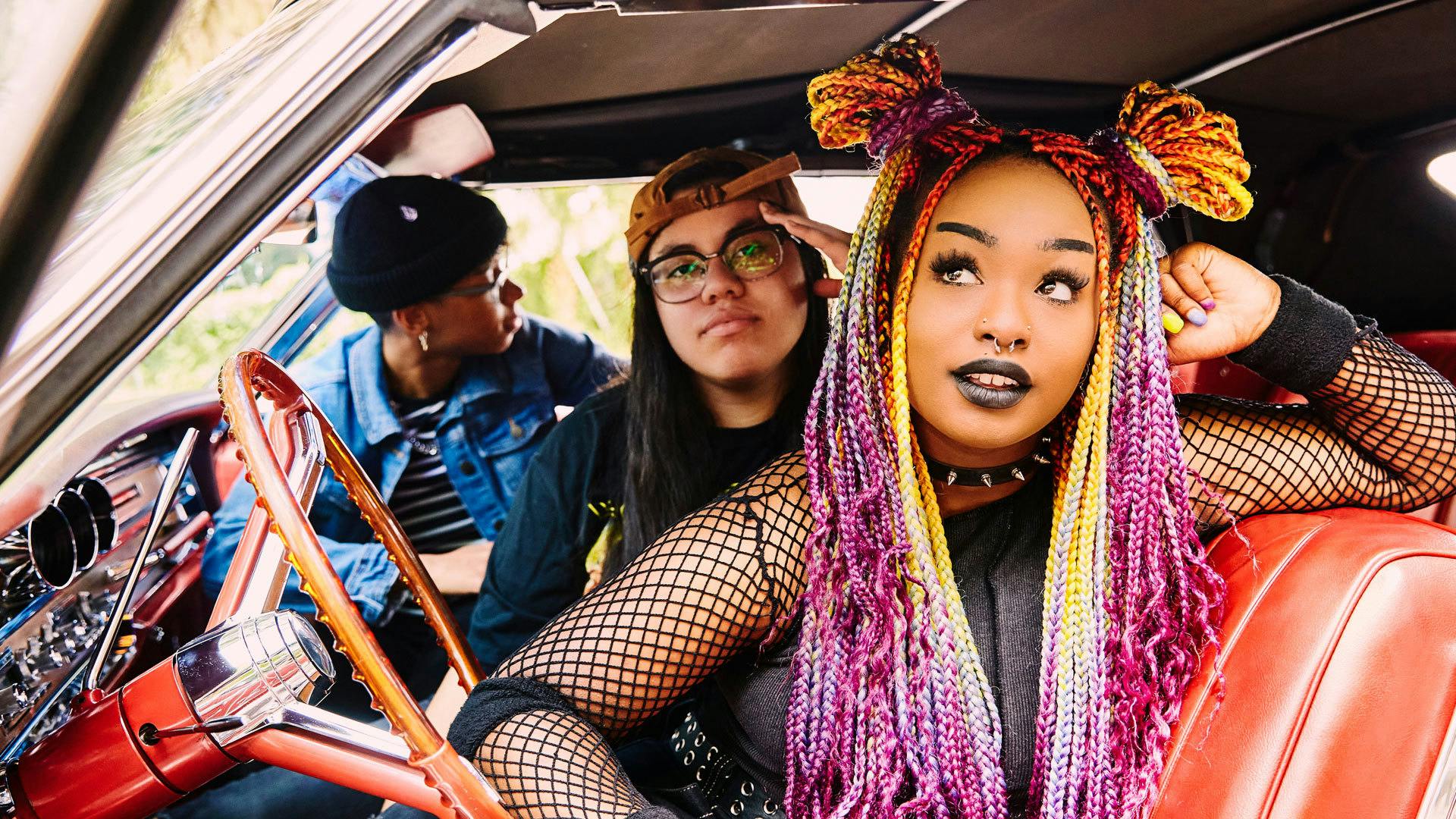“I think it’s been like that in all genres,” reasons Téa, keen not to blame pop-punk exclusively for an issue affecting all facets of the music industry. Edith nods in agreement, pulling out her phone to Google the lyrics to a particularly grotesque example, from the track U.O.E.N.O by rappers Rocko, Rick Ross and Future, which celebrates the act of drugging a woman’s drink.
“It’s so upsetting,” Edith gesticulates wildly. “No-one knew what he was saying because of his delivery, so it went under the radar, and it’s such a popular song on the radio.”
For Téa, the best way for her band to exact constructive change is to broaden the parameters of what pop-punk bands write about by moving away from the tired tropes of men being angry at their ex-girlfriends – not just because it’s well-trodden ground, but because it’s a narrow worldview and imparts negativity. “We didn’t want to contribute to that, which is why we focused our lyrics on new topics, covering things you haven’t heard before,” explains Téa, who’s found understanding in the lyrics of Los Angeles singer-songwriter Hayley Kiyoko, a queer woman of colour. (In a tweet last year, Téa revealed her and Ada are both gay, adding: ‘WE GOT ALL THE REPRESENTATION BAYBEE’.)
Edith has also drawn from a well of influence outside of the music she’s making her name with, from artists like J Cole, Kendrick Lamar and Jay-Z, but with a special acclaim going to singer India Arie, “who sings about being a Black woman, accepting herself for that, and embracing her own beauty – all while touching on the colourism and sexism that female artists in R&B and rap have to deal with.”
